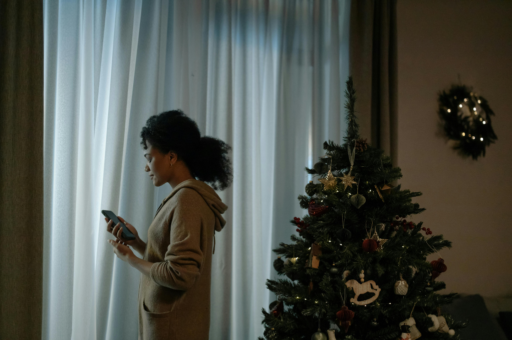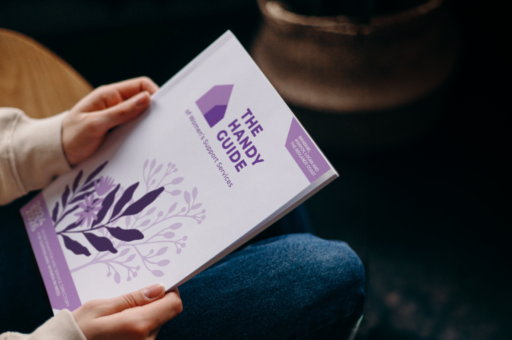
The dark side of Yuletide: The connection between domestic violence and Christmas
Nov 01, 2024
For some people, it’s the most wonderful time of the year. But for others, Christmas is not a time of joy at all – it’s a time marked by fear and intimidation, as instances of domestic and family violence (DFV) surge over the festive season.
For people who are in an unsafe or controlling relationship, the idea of being ‘home for the holidays’ doesn’t conjure up warm feelings. According to Inspector Mel Dwyer, from the Queensland Police Service Domestic, Family Violence and Vulnerable Persons Command, the risk of DFV is particularly high over the holidays.
“The holiday period is a time of increased risk for vulnerable members of our community,” she says.
Inspector Dwyer says that while DFV is a threat all year long, there are certain conditions over the holiday season that exacerbate the risks.
“Everyone has the right to feel safe at home, but that’s not always the case for people who are in an unsafe or controlling relationship,” she says.
“Violent or controlling behaviour does not appear ‘out of the blue’ or just at certain times of the year. It’s important to understand there is never an acceptable excuse for this behaviour – but there are factors within the holiday season that can increase risks for people experiencing domestic and family violence.
“Throughout this time, we’re often on holidays and spending more time at home. For a victim-survivor, that means more time with their perpetrator. There are often more opportunities to consume alcohol at social events and parties, and there is greater scrutiny of victims’ time, which can lead to increased jealousy and propriety of victims. There can be greater financial stress, and a need to meet the needs of the family at Christmas.
“These are all things that can increase tension and unhealthy behaviours in relationships and increase the risk for those in these situations.”
In 2022, DFV calls to the Queensland Police Service (QPS) over the Christmas and New Year period increased by 32 per cent compared to the previous year (up from 4,346 calls to 5,724). The days of highest demand for police responses to DFV over this period were New Year’s Day and Christmas Day, with 599 and 595 calls for service, respectively.
Inspector Dwyer says the number of domestic violence occurrences that police respond to is increasing exponentially year-on-year. While this represents a concerning trend, Inspector Dwyer says it may also indicate a greater understanding and awareness in the community and a greater willingness to report DFV.
“Each engagement is also an opportunity for police to engage with victim survivors in a victim-centric, trauma-informed manner,” she says, “to understand the dynamics of the relationship as a whole and to take action to protect the victim survivor and hold the perpetrator to account.”
Inspector Dwyer says the QPS takes a number of actions to prepare for the surge in DFV calls over the holidays.
“This is a time of increased demand for both the QPS, our partner agencies, and across the domestic violence service sector to link victims and perpetrators with support to address their immediate needs,” she says.
“In recognition of the demand, we ensure sufficient specialists are available to support first response police with complex matters, including our DFV specialists operating in our Police Communication Centre providing support to police across the state, seven-days-a-week.”
“We have also significantly invested in the training of all QPS members to upskill them in delivering victim-centric trauma-informed practices to victim survivors, recognising the ongoing impact of trauma to victim survivors, and are aware of image management by perpetrators and the tactics they employ to avoid identification as the perpetrator.”
Inspector Dwyer says the entire community can play a role as active bystanders over the holidays.
“We all undertake a vital and critical role in looking out for our family and friends and being supporters and active bystanders in a safe and effective way,” she says.
“While police are really important in the response, we can all play a role in helping to create safer home environments.”
Getting help and support
If you, or someone you know, is experiencing DFV, support is available.
There are a number of ways you can access support from police, including:
- If the incident is happening now or someone is in immediate danger, call Triple Zero (000)
- Reporting via Policelink 131 444
- Requesting contact with police online
- Accessing QPS’ domestic violence portal online
The QPS also recommends a number of other supports that can be accessed, including:
- The Be There app, a bystander empowerment tool which provides information and resources
- DVConnect Womensline on 1800 811 811
- DV Connect Mensline on 1800 600 636
- 1800 RESPECT on 1800 737 732
To search for more services near you, use The Handy Guide, an information and service directory for Queensland women in need.




